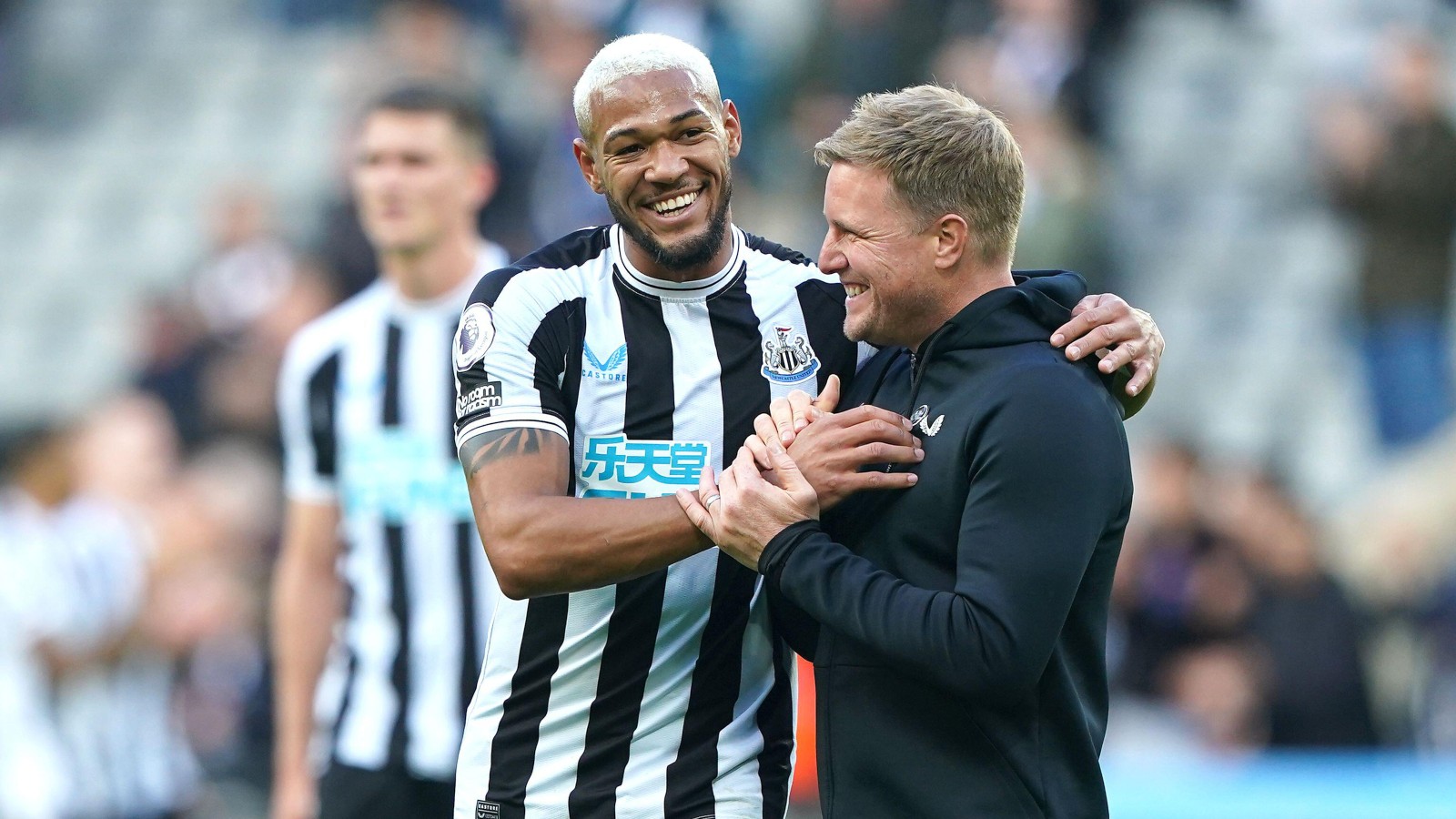When the European Super League emerged last year, the knee-jerk reaction said it was a horrible thing to resist.
Six Premier League sides were taken to bed with the breakaway, but seeing the backlash, almost immediately issued a mea culpas and pretended they didn’t really want to accept it, ESL meant nothing to them and they certainly wouldn’t go back to bed with it.
While few believed the greasy hostage-style videos of these owners declaring their love for the fans and the club, many believed it put the issue to bed. This is not the case.
Eighteen months later, Real Madrid, Juventus and Barcelona still haven’t apologized for ESL and given up on the concept. Quite the contrary. They are preparing another variant, after asking the European Court of Justice to rule on UEFA’s monopoly on European football.
Why should UEFA occupy this exalted position? Who died and made them king or queen? That’s the question. It’s not like they’ve done much to protect football from the worst forms of greedy capitalism and nothing at all to prevent clubs from being bought by the worst people.
If things go the way of the rebels, the ground is already in preparation for another Super League proposal, different from before, in the sense that it would not be a sealed league, but identical in that that it would be very profitable for the participants.
The sealed league was the main objection that was voiced to the idea last year. Will this change make it more palatable?
I was in the minority that always favored an ESL. Why? Because it’s the easiest and quickest way to completely reset football, eliminating the wealthy clubs that box every league for themselves and leaving them to roll on the bed of Super League money. Obviously, in an ideal world, that wouldn’t be necessary, but it clearly is.
Nobody outside the fans of clubs that regularly win leagues or finish in top positions wants to see those clubs dominate everything in perpetuity. Too many games are closer to exhibition than competition and as the financial disparity hardens it will only get worse. Something has to be done.
Asking clubs like Brentford to be able to consistently compete with clubs that have spent over £200m this year alone and often even more than that, is ludicrous and nigh on impossible.

Real, Juve and Barca are right to worry that the Premier League has become a financial behemoth that cannot be competed with. Their outlook is of course totally selfish and they are about as far from being fiscally responsible as it gets. Even so, in many ways they are on the right side of the argument.
Why did UEFA have this monopoly for 70 years? He allowed the grotesque financial imbalances to happen, he gave up all heinous ownership models, he oversaw the Premier League to become an engine of insane inflation and did nothing to stop it. It has allowed the Champions League to become a tournament that only a handful of clubs can win and it introduces the 36-team Swiss model format which many believe will make it even more stupidly bloated, and do nothing to remedy one of the imbalances. already endemic to European football.
In short, UEFA has already crashed the car.
Everything wrong with modern football happened under UEFA. To question their position as supervisors of the game is, in this light, far from unreasonable.
A proposal that clubs should manage the new ESL and not UEFA makes sense. In the same way that the Premier League is owned by the 20 shareholder clubs that play there every season, so would the new ESL. The league creates its own rules on everything from administration to finance, voted on by the participants. It is attractive to potential participants.
These three rebel clubs have deliberately left the specifics of their new concept open so that they can attract as much support for the shift from UEFA governance to internal decision-making, should the ECJ decide that UEFA’s monopoly can actually be challenged. It’s also designed not to give potential critics red meat at this point.
It’s often said that fans of dissident ESL clubs wouldn’t stand it. But, to be frank, these clubs have already warped enough minds
to their way of thinking of the “best league in the world”. Ultimately, they see this new development as another bitter pill that fans have to and will swallow.
English football fans have shown little ability or inclination to reject all sorts of terrible impositions, from evil landlords to high ticket prices. They have proven easy to bribe with promises of money to spend on transfers and only protest when results fall short. The owners assume they’ll back the club regardless and all the evidence to date is that they’re right.
So a new ESL will be sold to them and they will accept it.
In fact, I suspect many would like the idea. Surely playing a competitive game against, say, Real Madrid is more exciting for Manchester City fans than a 4-0 draw against Southampton?
Removing the Big Six from the Premier League would mean a severe financial squeeze for those who remain, at least in the short to medium term. Frankly, the Big Six create most of the revenue that is split among the other 14. They feel that 14 has long since lost its glamor and ability to attract large crowds. From the perspective of greedy capitalists who only see football in terms of financial gain, you can see their perspective.
Removing them from the equation would immediately reduce transfer fees and wage inflation through reduced broadcast rights. The clubs would have a lot less money.
But a competition without The Big Six would be so much more competitive and unpredictable. The Premier League, or any organization that replaces it, could sell it as a more democratic league; the People’s League, perhaps. It would not be surprising to find that it was a very attractive product that would attract substantial television ratings and advertising revenue. But less money to pay big salaries and fees isn’t a bad thing. Less money, better distributed, would be a positive thing. And an ESL is a chance to reset financial restrictions to provide more sustainable and healthy finances.
But plans have yet to harden and the Rebels need to work out how clubs can be relegated or qualify for its new league.
So there are certainly problems to be solved. But one thing is for sure, the way things have been are not what they will be forever. Big Big Money is destroying competitive football, and Big Big Money has all the power. We have to stop pretending that football is still what it was 40 or 50 years ago.
We need a modern solution to the modern problems that the massive financial imbalance has created. ESL is that solution.
And is there really anything to worry about in a European Super League? A small elite has become so enriched by fair or crude means, that no one else can seriously compete with them. They make leagues semi-dysfunctional as competitions all over Europe. If they only played against each other, the games would be fairer battles and more interesting than they are now.
Big Six games against each other would still take place in the ESL and most big derby games would still take place, with the exception of Merseyside.
A break from the way things have been done is the perfect time to introduce a whole new way of doing business for the remaining leagues.
We can watch wealthy ESL clubs compete, as we put the national game back in the hands of those who started it.
Come on, that’s not the worst idea you’ve ever heard, is it?
#European #Super #League #form #supportive..






